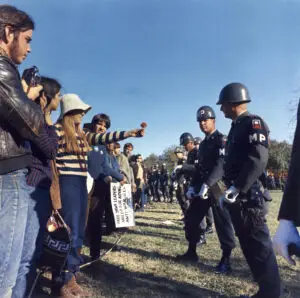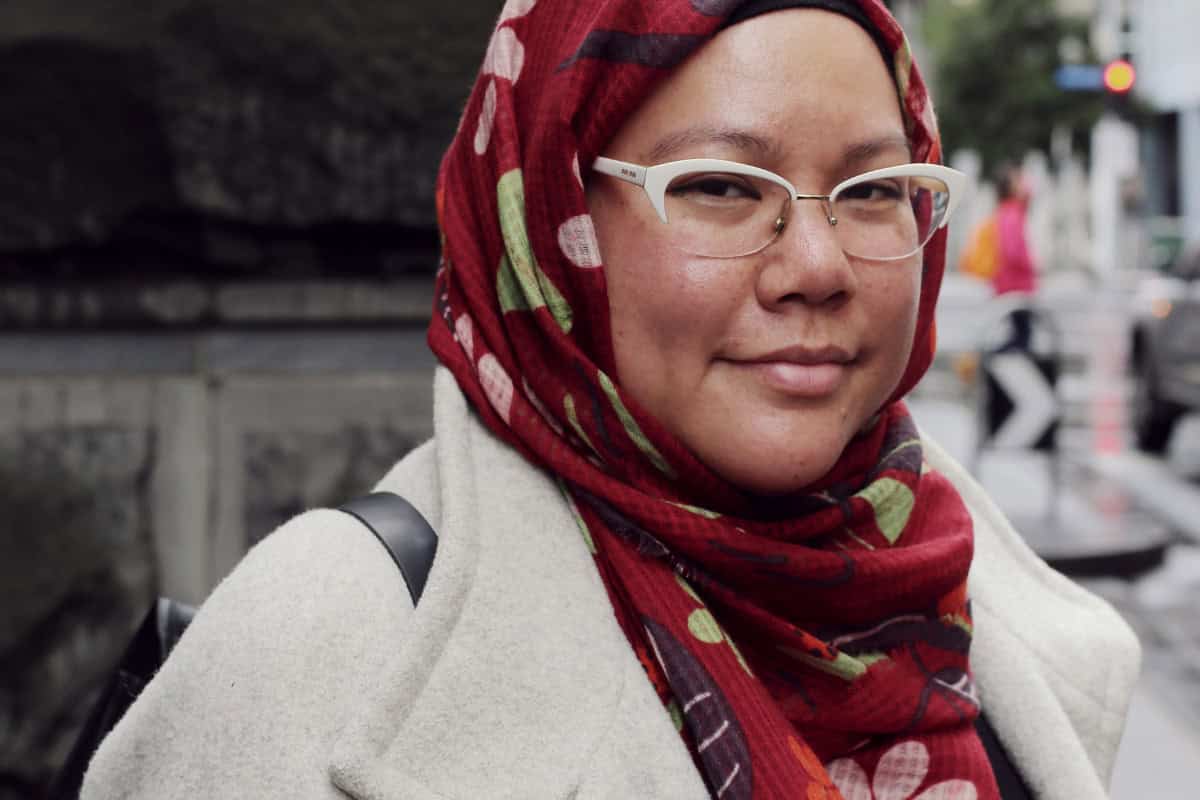
By stock-in-trade new naturalistic theory, war and conflict are basic to organic life: species typically fight to survive.
When it comes to war, though, humans rarely justify their right to take up arms by appealing to laws of the jungle. Traditional societies feud to assuage the blood of their precious fellows. Nations have ‘higher reasons’: if they do appeal to ‘the survival of the fittest’ (as did Nazi ideologues), language of their people’s rightful role, often based on race, historical destiny, and sacred cultural inheritance, is preferred. Victory can legitimate wider dominance or defeat a brooding ‘biding of time.’ In Antiquity the Pax Romana facilitated the mass-slaughter of Gauls; in early mediaeval times being long kept divided eventually made for a fiercely united Arab reaction.
Peace or the absence of war
After millennia of hostilities, we can afford to be cynical about the natural artifices of peace. Anthropologists rejoice when finding indigenous mechanisms for peacemaking, and marvel at the in-built daily cooperativeness of humans within groups. But all is relative. Tribespeople make extraordinary sacrifices for their own security circles and handy alliances to threaten foes.

So with the citizens of modern nations: peace means the avoidance of being taken over and the continual shoring up of good relations with friendly powers. Peace becomes the absence of war; although how many scars have been left after enforcers of pacification relinquish control?
The globe is littered with post-colonial conflicts, from tiny Swaziland to vast Sudan, cramped Nagomo-Karabakh to the sweeping Donbas. Modern nations have almost all proudly professionalized their armed forces to fend off enemies and keep order, so that supposedly it is now not the average citizen’s responsibility to fight. But the question too often remains, which military strongmen will be the next seize power? And who will suffer the consequences?
The West has prided itself on a strong tradition of treaties that forestalled prolonged war (Westphalia 1648 after the Reformation, Utrecht 1713 after Spanish Succession Wars, Vienna 1813-4 after Napoleon, Versailles 1919 and Yalta 1945 after WWsI-II), yet they all had serious limitations. The victors always decide that the balance of power works in their favour. Remember how overkilling the losers at Versailles induced Hitler’s mass speeches of Germany’s ‘righteous indignation’.
“So,” rhetorician George Puttenham’s old 1589 adage still applies: “peace brings warre and warre brings peace.”
One may realistically conclude that political peaces (alliances, cessations of hostilities, face-saving détentes, etc) are fallible management exercises. Meanwhile research reveals the many times European-founded nations’ dirty linen is visibly out to dry (genocide, mass murders, democracy’s own violent control-measures; terrorisms from Euskadi to the Balkans; enforced apartheid in South Africa and southern USA; mercenary activity; down to ‘lucky’ Australia’s covert arms-dealings, spurious detentions, etc).
Overseeing the preservation of peace & peace building
The necessity for international controls to preserve peace as the avoidance of war has increased under post-War conditions, given access to high-tech methods of mass destruction. Yet playing nuclear brinkmanship suits more aggressive states, considering how United Nations Disarmament policies are hamstrung by vetoing in the Security Council, and how the UN, unless asked, is powerless to intervene in internal conflicts (as in occupied and now utterly ravaged Gaza today). The necessity for each nation to promote internal peace is obvious if cross-national commerce is to keep working, although notice how unity is under-girded by over-projecting external enmity. These days peace might best be defined by living in a place out of harm’s way: yet, even if one is not in a gang-ridden centre like Port-au-Prince, violence is reported in every quarter (drive-by shootings in leafy suburbs, knives in supermarkets, epidemics of domestic hate-crimes).
Peace is a scarcity, but it is the pearl of great price not even the most competitive enterprises can buy.
Professional peace-workers, nonetheless, are pressed to reckon peace the final ideal, like true care for social workers, impeccable justice for jurists, truth for daring philosophers, or love as unconquerable goodwill for radical theologians. Conflicts rarely end with ‘so-called permanent cease-fires’; being resolved ‘with justice’ and patient ‘truth and reconciliation’ procedures is best.
Peace as pacifism is a social ‘heresy,’ as Graham Greene once suggested, subverting all our institutions that are compromised by group interest; but our world cannot do without Mahatma Gandhi, Bertrand Russell and his Quaker first wife Alys, Martin Luther King, Jr., Tich Nhat Hanh, to project our highest dreams and prove that “unarmed prophets” do not really fail, to challenge us with an ultimate goal to die for, and bespeak a final rectification beyond all hope.
The right to protest against violence is fundamental, as also the right to dissent: to what extent Luddite tactics carry validity is a matter of context, and whether to use force against tyranny a perennial quandary. Countless groups and individuals struggle over their opinions, special prejudices, or existential outcries; administrations want stability; deep down in their being most of us seek inner harmony and for humanity to ‘rest’ — beneficially.



